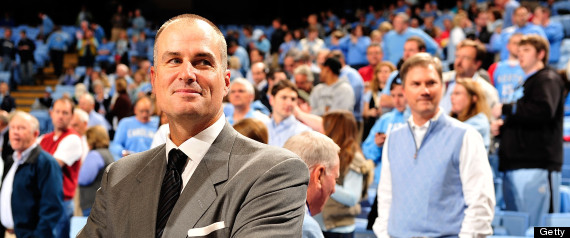ESPN, College Sports Programming Face Uncertain Future
Posted by BHayes on August 29th, 2013Bennet Hayes is an RTC columnist. He can be reached @HoopsTraveler.
If you love college athletics, you have little choice but to love ESPN. The “Worldwide Leader” has long dominated the broadcasting of college athletic events, especially in the two sports that matter most – football and basketball. Earlier in the week, the New York Times released a three-part series of investigative reports that examined the central role ESPN has played in the rise of college sports programming. Many of their discoveries pertaining to the past, present, and future states of the industry fall very much outside the scope of common knowledge, and we came to find out that university athletic officials are actually not all that that different from fans when it comes to ESPN. The network’s value to the world of college athletics is so prodigious, and their monopolizing grasp sufficiently expansive, that whether they like it or not, conference representatives and university athletic departments have been forced to embrace and cater to the network and their needs. Just like us, there is no alternative: They must love ESPN. But in this age of ever-evolving broadcast media possibilities, where cable networks are suddenly finding themselves on perilous footing, the question of the day is whether ESPN will be able to maintain that firm grip on the college sports programming market moving forward.

Jay Bilas Is Just One Of The Many ESPN Personalities We Have Come To Know Well Over The Years; What Is The Network’s Future When It Comes To College Sports Programming? (Getty Images)
Through the 1990s and early 2000s, ESPN built a swath of broadcasting rights to football and basketball games in most of the major conferences. They had no real competition in the space, and were able to get away with accumulating rights for more games than they had time to broadcast. This sort of “warehousing” did not sit well with conference and university athletic officials, who naturally sought maximum television exposure for their conferences and teams. But with no other key players in the marketplace, they had no other option but to stick with the all-powerful ESPN. A 2004 Justice Department investigation into the practice of warehousing prompted the creation of ESPNU as an accommodation to some of those complaints, but while other networks have attempted to beef up their college sports programming volume – Fox, CBS, NBC most notable among them – ESPN still maintains a stranglehold strong enough to force schools to accede to their every demand.









































